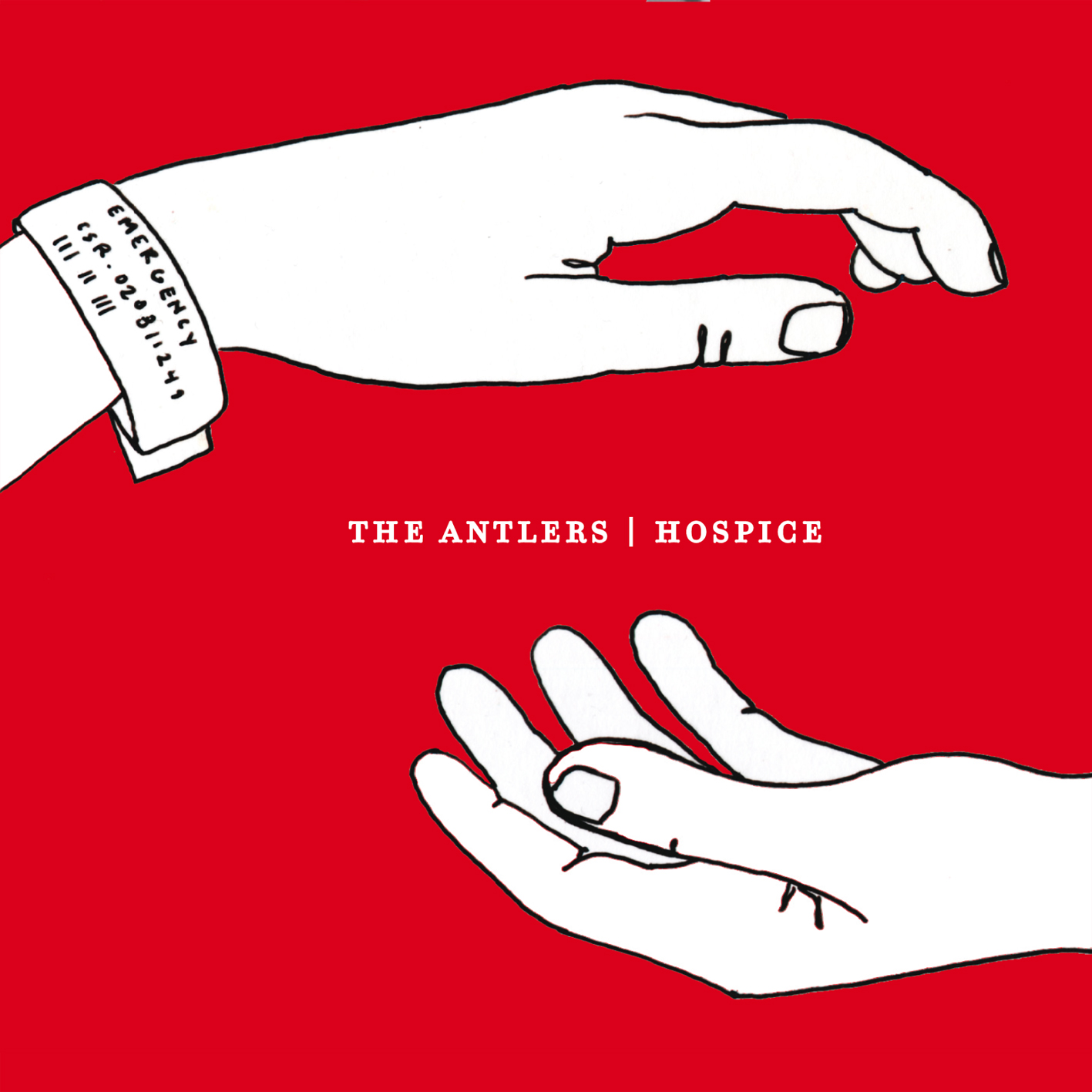Rainy Day Music #9: Hospice
April 14, 2014
Last week’s pick, Dilute’s second album, was a piece of beauty that embodied rain in its sound as well as its abstract emotion. This week’s Rainy Day Album does away with the abstract and goes straight for the emotion: Hospice by the Antlers. Thanks to our Promo Director Maeve McDermott for this pick.

The Antlers are mostly the project of New Yorker Peter Silberman, who released two short albums under the name before finding a full band. 2009’s Hospice was the group’s debut, self-released at first and then re-released by Frenchkiss Records when the band’s copies of the incredible album inevitably sold out.
Of any indie rock record, this one could be the most well known as a “sad albumÛ. The album tells the tale of an emotionally abusive relationship through an extended metaphor of a hospice worker falling in love with a dying patient. Unlike the other hyper-emotional, death-focused concept albums that it is often compared to (Funeral, In The Aeroplane Over The Sea) it never contains anything that could be considered a celebration of life.
Rather, a suffocating lyrical darkness runs through Hospice. “Kettering” sets the scene with the ill-fated couple’s fateful introduction. The terminal patient immediately insults the worker, but he sees the weakness in her and stays at her bedside. The rest of the album picks apart the worst relationship you could ever imagine. “Sylvia” finds the worker discovering his lover’s Plathlike depression. “Atrophy” and “Bear” detail the couple’s sickliness, with the patient’s cocktail of cruelty and neediness reducing the worker to a nervous wreck. “Two,” the heart of the album, journeys into her history and reveals that her nature stems from the vulnerability of a sick and abused childhood, as the tension in the couple’s relationship reaches a fever pitch.
And then, finally, she dies, and the album enters the final trilogy of songs. On “Shiva,” the worker describes the leaden moment of her death with shocking empathy. The album’s climax, “Wake,” is a brutal depiction of grief, with the worker’s simultaneous relief and guilt keeping him isolated until the song’s final release, in which he begins to move on and realizes that “some patients can’t be saved,” and that, essentially, shit happens. “Epilogue” ties the album together in a meditation on her life and death, and with a final vindication for her beloved hospice worker, when his haunted dream of her ends with the album’s final word: “apologizing.Û
As you might guess, the most important instrument on this album is Silberman’s extremely versatile voice. There is his hyper-intimate narrating tone, mostly used in the verses, which is quiet and almost grotesquely close-miked so that you hear his mouth opening. The other extreme can be heard best on the chorus of “Sylvia,” which releases his characters’ latent demons in a manic falsetto wail. Between these extremes his voice reveals itself to be a wounded, brave one, matching his characters well.
More so than any stylistic genre choices, Silberman’s narrative takes charge of the musical elements and defines the album’s direction. Because of this, Hospice dips its toes into many styles of indie rock. “Bear” transitions from twee, lullaby verses to swooning, epic choruses. “Two” builds from a sad indie folk verse to a muscular stadium rock scale. “Sylvia” explodes with bombastic horns, while “Atrophy” is a piano-led dream dirge and “Epilogue” a bare-bones acoustic affair. There are many moments of great ambience as well, from the vast guitars in the chorus of “Bear” to the Radiohead-esque chorus of wordless “oohs” on “Prologue” and “WakeÛ.
At times, the ambience takes center stage. The middle section of epic “Atrophy” buzzes with an unbearable intensity and the middle of “Wake” nearly becomes post-rock with its gorgeously layered guitar feedback. The album’s best moment of pure sound comes on “Thirteen,” like Radiohead’s “TreefingersÛ on steroids, with a guitar processed so much that it sounds less like an instrument than a supernova. This song takes ambient music to a new level, and its crashing chord changes are as heartrending as any of Silberman’s screams.
Several of our Rainy Day Albums have been, at their core, very emotional: Turn On The Bright Lights, High Violet, Elliott Smith. But somehow Hospice eclipses them all. Unlike these albums, it never broods. It makes its emotion known, throughout, baring it all and never holding back. It set the bar so high in 2009 for a sad indie rock album that nobody has topped it yet; Arcade Fire made Reflektor, Bon Iver gave way to Volcano Choir and even the Antlers cooled it down afterwards.
But none of that matters, because we still have Hospice for those rainiest-of-rainy days, when you’re trapped inside and it’s dark all day and all you can do is reach into yourself and find the most human of emotions. Hospice will be there to aid your private catharsis, and if you’re really low, let “Wake” dispense wisdom in its sadly comforting sentiment: “don’t ever let anyone tell you you deserve this.Û














